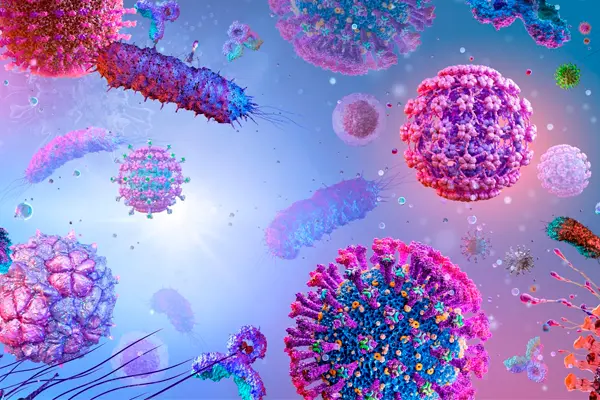Diseases genetic

If you tested your DNA with a personal genomics service like 23andMe, AncestryDNA, FamilyTreeDNA, MyHeritage or another testing company, you can learn more about your risk factors for hundreds of diseases. By clicking the button above ⬆️, you can upload your raw DNA data file and receive a personalized 250-page health report with research links that is the most comprehensive.
Human genetic illnesses stem from mutations in one or more genes and can be classified as occurring due to chromosomal anomalies, single-gene Mendelian disorders, non-Mendelian ailments related to a single gene, or multifactorial triggers.
Heredity's foundational elements are genes, which transfer from parent to offspring. These gene structures contain essential DNA code instructions for constructing proteins responsible primarily for cell operations; protein functions such as relocating molecules, fabricating assemblies, eliminating harmful substances and other maintenance duties.
On occasion, a gene or genes undergo mutations that alter the instructions for protein production resulting in either non-functioning or absent proteins. This alteration leads to an ailment referred to as genetic disorder.
A gene mutation can be inherited from one or both parents, and may also occur during an individual's lifetime.
Genetic disorders can be categorized into three types:
One-gene disorders are those in which a single gene is affected by mutation. A typical instance of this is sickle cell anemia.
Chromosomal disorders occur when there are missing or altered chromosomes (or portions of them). These structures house our genetic material. An example of a chromosomal disorder is Down syndrome.
Examples of complex disorders include colon cancer, where multiple gene mutations along with lifestyle and environmental factors contribute to the development.